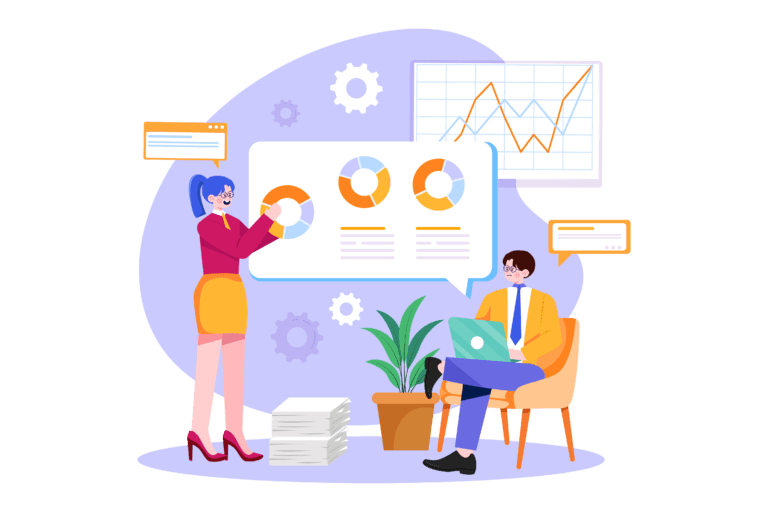Any time you research for “ERP” word on the net, the total amount of info that comes up will be very vast that could be a slight confusing. Every website appears to have its individual definition of ERP. These differences, however, highlighted the flexibility that can ERP provide as a powerful business tool.
To develop a clear understanding of exactly how ERP system able to transform your business, it supports to develop an enhanced regardless of what ERP really is and how it works. Here is a short introduction to ERP and why it looks like is everyone talking about it.
ERP is a short form for Enterprise Resource Planning, even though, its full name does not shows clearly what ERP is? or what it does. For that, you have to take a step back and consider about all of the different methods that are essential for running a business, together with inventory and order management, accounting, human resources, customer relationship management (CRM), and others. At its most basic level, ERP software integrates these various functions into one complete system to streamline processes and information across the entire organization.
The essential feature of all ERP solutions is an integrated database that supports several tasks used by varied business units. In actual fact, this means that staffs in different departments—for example, accounting and sales—can rely on the same information for their particular needs.
ERP software’s also offer some level of synchronized reporting and automation. Instead of pushing staffs to manage separate databases and spreadsheets that manually combined to produce reports, several ERP solutions allow staffs to pull reports from one system. For example, with sales orders automatically flowing into the financial system without any manual entering, the order management department can process orders more quickly and accurately, and the finance department can close the books faster. Other rife ERP features include a portal or dashboard to enable employees to quickly understand the business’ performance on key metrics.
A Short History of ERP
The phrase ERP was created in 1990, but its origins date to the 1960s. Back then, the concept applied to inventory management and control in the manufacturing sector. Software engineers created programs to manage inventory, reconcile balances, and report on status. By the 1970s, this creation had developed into Material Requirements Planning (MRP) solutions for scheduling production processes.
Afterwards, MRP developed to include more manufacturing procedures, prompting many to call it MRP-II or Manufacturing Resource Planning. What happened next, these systems had expanded beyond inventory control and other operational processes to other back-office functions like accounting and human resources, setting the phase for ERP as we have come to know it.
Currently, ERP has expanded to cover business intelligence (BI) while also handling “front-office” functions such as sales force automation (SFA), marketing automation and ecommerce. With these product progressions and the success stories coming out of these solutions, companies in a broad range of businesses, from wholesale distribution to ecommerce, using ERP systems.
Moreover, even supposing the “e” in ERP stands for “enterprise,” high-growth and mid-size businesses are currently widely adopting ERP systems. Software-as-a-Service (SaaS) solutions, similarly denoted to as “cloud computing”, that have helped to feed this development. Cloud based solutions not only support ERP systems affordability, they also make these software’s easier to apply and manage. Possibly yet more essentially, cloud ERP empowers real-time reporting and BI, making them even more valuable to directors and employees looking for visibility into the market.
Consequently, businesses of all sizes and a wide range of industries are shifting to cloud ERP systems. At what time you stop to consider the advantages of ERP, it is easy to realize why it is turn into so popular and why its use will stay to develop so quickly. At its basic, ERP supports workers do their jobs more professionally by breaking down walls between business units.
Top ERP Vendors according to Gartner report are: Acumatica, Epicor, Fluentis, Fujitsu Glovia, IFS, Infor, Microsoft, Oracle, Plex, Priority Software, QAD, Ramco Systems, Sage, SAP, Syspro, Tyler Technologies.





